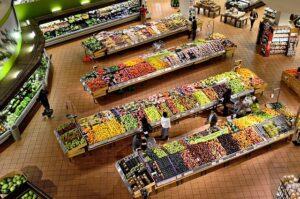Food sovereignty is a national security issue
The challenges of recent years have shown worldwide that access to good quality and affordable food is no longer just an agricultural policy goal, but a fundamental national security issue. Hungary therefore places great emphasis on strengthening the resilience and sustainability of agriculture, as well as on building short supply chains and facilitating generational change in agriculture, stated Oszkár Ökrös, Undersecretary of State for International Affairs, at the UN Food Summit in Addis Ababa, the capital of Ethiopia.

(Photo: Pixabay)
Oszkár Ökrös emphasized that global food security has been faced with serious challenges in recent times Epidemics and disruption of supply chains, extreme weather events – including increasingly frequent droughts and floods – and the drastic increase in energy and raw material prices due to armed conflicts have all put serious pressure on food systems. According to the Deputy Secretary of State, these challenges have made it clear that the goal of food sovereignty, i.e. the ability to be self-sufficient in terms of good quality, affordable and sufficient food, is no longer simply an agricultural policy aspiration, but a fundamental national security issue. He further recalled that Ukraine’s EU membership would also endanger Hungary’s food sovereignty, because significant quantities of Ukrainian agricultural products produced at lower prices and in a different regulatory environment could distort competition, crowding out domestic producers and reducing Hungary’s self-determination over food supply.
In his speech, Oszkár Ökrös highlighted that, based on this recognition, our country places great emphasis on strengthening resilient, flexible and sustainable food production and short supply chains
He mentioned the development of a water management strategy and the support of precision irrigation technologies as measures to help adapt to climate change, as well as the support of regenerative agricultural practices that improve soil health, biodiversity and carbon sequestration. Regarding short food supply chains, the Deputy State Secretary explained that they not only offer economic benefits, but are also effective tools for regional development through a kind of positive feedback loop, since when consumers buy local products, they directly support local farmers and food processors, who in turn spend their income in local communities. However, the use of local food should go beyond household consumption, as food services, including restaurants, school canteens and public kitchens, represent a significant market for local production. Finally, Oszkár Ökrös drew attention to the fact that agrarian societies are aging worldwide and that the demographic crisis is exacerbated by a number of other factors, such as the migration of young people to cities, or income inequalities and limited access to land, capital and labor. Hungary has therefore taken significant legislative steps to promote the generational renewal of Hungarian agriculture and introduced a simplified legal framework to facilitate intergenerational farm transfers, which significantly reduces administrative burdens and makes it easier for older farmers to transfer their farms to younger family members during their lifetime. A key element of this process is the newly introduced “business transfer contract”, which ensures clarity, legal continuity and a smooth transition.
AM
Related news
NAK President: more than 120 thousand people signed the agricultural petition in one month
🎧 Hallgasd a cikket: Lejátszás Szünet Folytatás Leállítás Nyelv: Auto…
Read more >János Lázár: rural development is needed, not agricultural policy
🎧 Hallgasd a cikket: Lejátszás Szünet Folytatás Leállítás Nyelv: Auto…
Read more >Related news
The government is supporting dairy farmers with a new measure
🎧 Hallgasd a cikket: Lejátszás Szünet Folytatás Leállítás Nyelv: Auto…
Read more >







